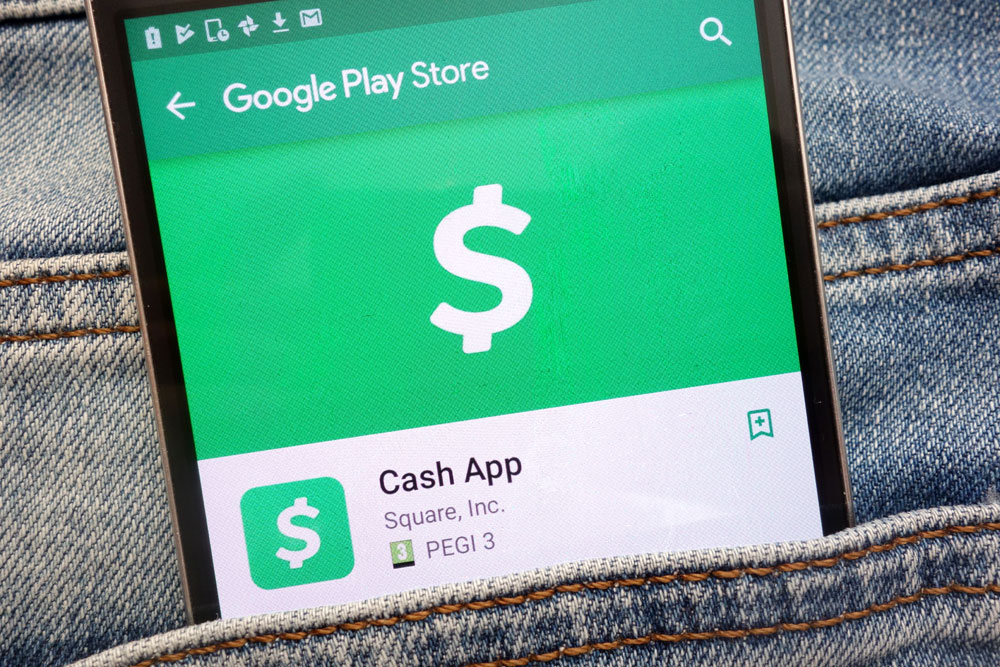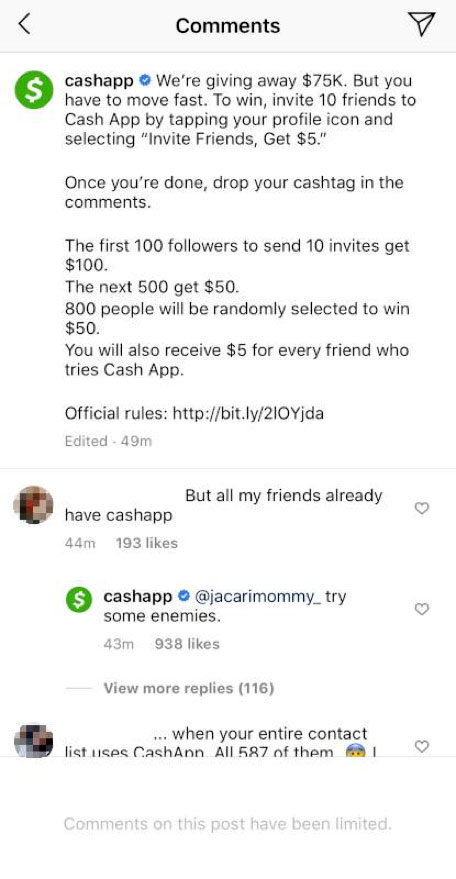#CashAppFriday: This Scam Is Stealing Users' Money
If it's too good to be true...

Hey college kids and teens! Don't believe all those Cash App giveaways you see on Twitter and Instagram. Some of them are scams, and the Cash App "money generators" you see on YouTube definitely are.
In case you're not familiar with Cash App, it's a Venmo competitor owned by Square that lets anyone with a smartphone send money to anyone else with the Cash App app. Rappers Lil B and Travis Scott have used Cash App to give away money to fans, and even Burger King has gotten in on the Cash App act.
Cash App is most famous for its #CashAppFriday promotions, which send money to the first batch of users who retweet or reply to Cash App's Twitter and Instagram posts, or even send money to random users as "blessings."
Users can make up to $500 if they're quick and prolific. That's a lot of Juul pods, or metal straws, or whatever Tha Kidz are into buying these days.

"Unsurprisingly, Cash App's legitimate giveaways are a breeding ground for scammers," writes Satnam Narang, a security researcher with Tenable who just wrote a report about Cash App, in a bit of an understatement.
These scammers are following Cash App's formula, promising to "[give] away 'X' amount of dollars to the first 'Y' number of users to retweet this tweet" or reply to an Instagram posting.
Some scammers ride the coattails of real #CashAppFriday social-media promotions, explained Sarang, while others start their own #CashAppFriday threads. Many imitate celebrities on social media and promise to just give away cash to loyal followers.
Sign up to get the BEST of Tom's Guide direct to your inbox.
Get instant access to breaking news, the hottest reviews, great deals and helpful tips.
Sketchy as that sounds, it so far mimics real Cash App giveaways. But the scammers then add a second step: They ask you to direct-message them, and when you do, you're asked to put up a small amount of cash, usually $5 or $10, so that they can "trust" you. Many of them pretend to be Cash App staffers who can "flip" that $5 into $50, or $10 into $100, and so on.
Needless to say, if you put up that $5 or $10, you're never getting it back. Cash App money "flips" do not exist.
Nor do the Cash App "money generators" that are posted on YouTube. In these videos, says Narang, the video creator shows how going to specific websites can get you up to $999 through Cash App.
If you go to one of these websites, you're asked for "verification" and redirected to pages that ask you to take a survey or install mobile apps. You won't get any money. But the scammer will, because he or she is part of a cost-per-install affiliate program that gives them a buck or so for every user they get to install an app or take a survey.
There's much more detail in the two-part Tenable report, which might make older and wiser readers shake their heads at how anyone might fall for such obvious scams.
"Cash App scammers are like sharks in a pond," concludes Narang. "If it sounds too good to be true, it probably is. In the case of Cash App giveaways, most of the time, it definitely is."
Paul Wagenseil is a senior editor at Tom's Guide focused on security and privacy. He has also been a dishwasher, fry cook, long-haul driver, code monkey and video editor. He's been rooting around in the information-security space for more than 15 years at FoxNews.com, SecurityNewsDaily, TechNewsDaily and Tom's Guide, has presented talks at the ShmooCon, DerbyCon and BSides Las Vegas hacker conferences, shown up in random TV news spots and even moderated a panel discussion at the CEDIA home-technology conference. You can follow his rants on Twitter at @snd_wagenseil.

